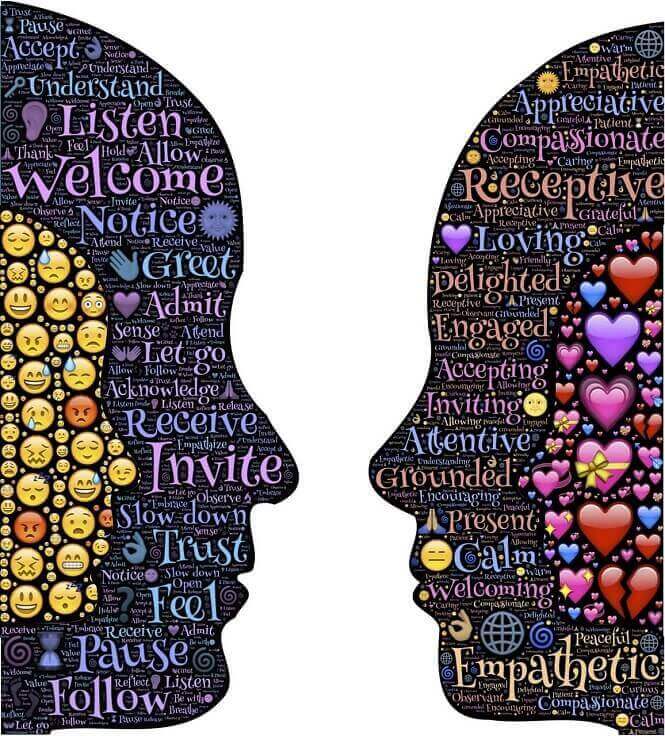Interpersonal skills are the ability to interact and communicate effectively with the other members of the same organisation or company. In this century, the importance of interpersonal skills in the workplace is increasing day by day. However, there are some common features of interpersonal skills. They all contribute to the importance of interpersonal skills in the workplace.
Notably, these features allow an individual to become compatible with the work environment. Moreover, interpersonal skills help to increase employee satisfaction, motivation and collaboration. By reading this blog, you will know all about interpersonal skills and their importance in the workplace.
What are Interpersonal Skills?
Interpersonal skills are also known as soft skills in an individual. They define someone’s inner-self and helps them connect with others. Therefore, there is a great importance of interpersonal skills in the workplace. Surprisingly, some employers prefer them over the technical skills of an employee. Thus, we can conclude how important they are in a workplace setting.

As an employer, this is one of the most sought after qualities for evaluating applicants. No matter what kind of position you are recruiting for, interpersonal skills are always relevant. For this reason, there is immense importance of interpersonal skills in the workplace. Employees must get along with their employees, bosses, clients and salespeople in any organisation.
Why are Interpersonal Skills important?
Interpersonal skills are vital in the workplace because they facilitate effective communication and collaboration among colleagues. These skills enable individuals to build strong relationships, resolve conflicts, and work efficiently as part of a team. Moreover, possessing strong interpersonal skills enhances productivity, boosts morale, and fosters a positive work environment. Overall, the importance of interpersonal skills lies in their ability to promote harmonious interactions and contribute to overall success in the workplace.
Basic Business Communication Skills
Types of Interpersonal Skills
For getting a job, interpersonal skills are essential. Thus, before getting in-depth into the importance of interpersonal skills in the workplace, let us look at some crucial interpersonal skills.
1. Communication Skills
Communication is telling someone to do something and getting help and instruction from others in a team. Indeed, communication is a two-way skill. By communicating with someone, you are providing information as well as getting information. This is how the knowledge and information within the organisation are shared.

On the other hand, communication has different features, such as verbal communication, non-verbal communication and written communication. Therefore, for getting the best output, a combination of oral and written communication is essential.
Thus, for specific jobs, oral communication takes precedence over written communication. Whereas, for others, written communications happen to be more critical. But balancing both aspects of communication is always essential. For instance, Service centres jobs require verbal communication with the clients to solve their problems. But at the end of the day, they must submit their reports in writing.
2. Empathy
Empathising someone is an essential aspect of being a professional. Therefore, every employer should look for the presence of empathy in their new hires. Whenever a co-worker needs to share their issues, responding with empathy is likely to help them. This will result in co-creating a culture of compassion.

Moreover, an empathetic individual is effective in improving his teamwork and also enhances team performance. Empathy is a valuable trait that allows employees to communicate with co-workers by showing-
- Compassion
- Sensitivity
- Diversity and inclusion
- Kindness
- Patience
- Respect
3. Leadership Skills
Leadership is a necessary quality in any professional today. Leadership means having the ability to make a decision and guide the other members of the team. Moreover, Leadership stands for the ultimate productivity of the organisation.

Leadership experience involves the following traits-
- Ability to motivate and inspire others
- Ability to instruct and influence others
- Management skills
- Encouraging nature
- Positive reinforcement.
4. Conflict Management
Regardless of whether you hire a supervisor or an employee, they will have to face conflicts at some stage in their job. For example, there is a conflict between you and an employee or between the client and one of the staff members. In that case, you must ensure that the employees listen carefully to both sides and use innovative problem-solving to resolve the conflict.

Some conflict management skill involves-
- Conflict resolve
- Criticism
- Mediating
- Problem-Solving
5. Teamwork
Teamwork plays a crucial part when it comes to interpersonal skills. They still have to cooperate with others, even though the task needs independent work. Effective coordination, listening to others, peer motivation, and collaborative dispute resolution are essential components of teamwork.

Additionally, teamwork means working and achieving goals together. Teamwork can mitigate any problem within due time with the help of team members. But any individual will have to find the solution all by themselves, which will take more time.
Teamwork involves-
- Employee collaboration
- Group discussion etc.
6. Positive Attitude
You want to recruit someone as an employee who makes your workplace better. Optimistic people are polite and keep their behaviour amicable. They guarantee that they do not engage in any office gossips and do not degrade the workplace culture.
Also, positive attitudes refer to maintaining a cordial relationship with colleagues and being honest in the workplace.

Therefore, positive attitudes include-
- Rapport creation
- Helpfulness
- Humour
- Creating network
- Social skills development
7. Listening Skills
Listening skills are essential for every profession. Therefore, every professional should practice active listening. It will improve their communication level with everyone and make the other person feel heard.
Thus, it would be best if you made sure that the employees also listen diligently to the viewpoints of others when expressing their views. Additionally, hearing is a critical skill that brings exposure to customers and co-workers, and as a Supervisor, you must be able to listen to and appreciate your workers.

Moreover, listening skills help us understand each other. It helps maintain a very healthy relationship with colleagues in the workplace.
8. Negotiation Skills
For certain positions, the ability to negotiate is important. That could include written arrangements or contracts with the clients or assisting colleagues. Additionally, negotiation is also vital in solving a problem and identifying a solution, depending on the specificity of the work.

Moreover, an effective negotiator can be identified by studying their listening capabilities, inventive problem-solving abilities, and how they arrive at a result that meets everyone’s needs.
9. Body Language
Non-verbal communication is often overlooked, but it should not be. You ought to have an eye for details as an employer and should not hesitate to understand the language and gestures of the employees.
Similarly, a person’s body language also determines the ability to communicate verbally. Their body language has the most effect on their verbal abilities.

Also, body language is non-verbal communication. This is about reading people’s motives by looking at their body gestures.
Thus, body language includes-
- Facial expressions
- Gestures
- Body position
Importance of Interpersonal Skills in the Workplace
Perhaps, there is no doubt about the importance of interpersonal skills in the workplace. Some important aspects of interpersonal skills are- communication, leadership, teamwork, conflict management etc.

1. Interpersonal Skills Foster Productivity by Promoting Effective Communication
Every successful company is built on effective communication, and you need interpersonal skills to be a good communicator. In addition, you need to develop connections between you and your fellow employees so that concepts, knowledge and expertise can be shared mutually.

In addition, every employee needs to have mutual appreciation and respect for the viewpoint of each other. This type of communication allows for the more fluid performance of services, better task management, and timely fulfilment of homework.
2. Real-time Work Feedback
To function successfully, you would need a transparent and positive feedback loop in most organisations. Which will efficiently respond to external and internal influences.
Let me know that it is simply the continued contact between a task-giver and a task-completer. First, the person doing the job will ask for feedback as he completes the steps. Then, the supervisor will either inform the employee that they are doing well or that the appropriate changes are needed. This is a continuous cycle or loop.
There can be some initial breakdown sometimes. Behind this breakdown, there will be some reason. These reasons include-
- Either one of them (task giver or taker) is failed to approach one another
- One of them is not ready to initiate communication
- Ineffective supervisory
Related:
1. Communication And Interpersonal Skills in Food And Beverage Service
2. ow to Improve Your Interpersonal Communication Skills
3. 5 Interpersonal Skills That Every Manager Needs

An immensely harmful and too common behaviour is the supervisor authorising the task and not providing feedback afterwards, especially if the employee has already requested it and been refused. After all, there’s nothing worse than a person spending hours on a job just for a boss to come and knock it down. This will harm the productivity, morality and efficiency of the work done.
Thus, real-time feedback plays an essential role in building the essence of interpersonal skills in the workplace.
3. Building Opportunities for Employees

You will gain access to more competitive opportunities at work and in your area of interest through connections with superiors and colleagues. For example, when you have a positive impression of your manager, they might give you good references or even bump you to a higher place with more roles and benefits. This is an excellent advantage to your career growth, of course.
4. Building Social Awareness

Interpersonal skills confirm that you care for the well-being of your employee and clients. You are in the process of earning their loyalty and faith. A clear sense of awareness and emotional intelligence can assist you in operating in a challenging social situation. Strategic experience can also help you in making the best choices and judgments on important work-related matters. So, it builds the vital importance of interpersonal skills in the workplace.
5. Maintain Fruitful Relationships within the Workplace
When interpersonal skills foster healthy relationships, they are most successful, helpful, and satisfying. Therefore, it is crucial to develop intimate relationships in the workplace and keep these relationships within professional boundaries. Thus, even maintaining relationships contribute to the importance of interpersonal skills in the workplace.

Also, it can be much more challenging to maintain such relationships than to establish them because several factors such as continuity, follow-up and continuing empathy are involved. As a result, the most effective way to sustain intimate relationships at work is to make them real.
6. Develop Leadership Skills

The importance of interpersonal skills for good management and leadership is standard in every discussion on workplace interpersonal skills. This is because a successful leader can encourage interpersonal interactions, build trust and communicate effectively. Conversely, a disconnected leader will eventually lose in the long run, while helpful team members will likely jump over the ship in the near term. In this case, production will be forfeited, and new jobs will be placed on the remainder of the workers.
How to Improve Interpersonal Skills at Work?
Interpersonal skills play a prominent role in all relationships. Be it at your workplace or home. The truth is, we all need interpersonal skills to communicate. Thus, let us look at some tips to improve them:
1. Controlling Emotions
You cannot be overly emotional at work. Thus, all of your emotions need to be toned down. It is for the betterment of maintaining workplace sanity.

But, since you are a human being, it is pretty evident that you would have mood changes. No one can stay in a constant mood. Anger, sadness, irritation- all of these are a part of us. However, at work, you need always to stay calm. You should never make your colleagues uncomfortable or threatened through your emotions.
2. Assertiveness

Assertiveness kills conflict and unfairness at the workplace. It gives you the power to voice your opinions. But, at the same time, maintain a good relationship with everyone. Thus, it makes you confident enough to demand your needs calmly. This practice keeps your relationship with others intact.
3. Maintaining Relationships

Life becomes a lot easier when you get along with your co-workers. These are the people with whom you spend most of the day. So try to connect with them and build a bond. Also, maintaining relationships with managers and co-workers can excel your career.
Related:
1. A Definitive Guide To Basic Interpersonal Communication Skills
2. I nterpersonal Skills: A Complete Guide for Newbies
4. Give Compliments

Try to find the good sides of everyone and give them compliments. Compliments can go a long way in making someone’s day. It helps to brighten up moods and provides an instant confidence boost. Also, remember that you will also be in their “good books” if you make someone’s day!
5. Be Empathetic

Lastly, empathy is very important. It not only helps to build connections but also gives someone a shoulder to cry on. For example, if you notice that someone is having a rough day, reach out to them. Then, try to listen to them and share any of your stories if that relates. This would make the other person feel light. They will feel heard and understood.
Ending Note
In addition to building relationships, outstanding leadership skills profoundly affect group performance and enhance the commitment and effectiveness of the company’s teamwork.
So, suppose you are the person who seeks the details of interpersonal skills and wants to know more about this. In that case, you can enrol Interpersonal Skills in Management course or Effective Communication Skills course for better understanding.
Basic Business Communication Skills
FAQs
1. What is the importance of interpersonal skills?
Interpersonal skills are crucial in the workplace as they facilitate effective communication, teamwork, and collaboration among colleagues. These skills enable individuals to build strong relationships, resolve conflicts, and understand others’ perspectives, fostering a positive work environment conducive to productivity and success.
2. Why are interpersonal skills important in the workplace?
Interpersonal skills are crucial in the workplace because they facilitate effective communication and collaboration among team members, leading to improved productivity and efficiency. These skills enable employees to build positive relationships, resolve conflicts, and foster a supportive work environment. Additionally, strong interpersonal skills contribute to better teamwork, customer satisfaction, and overall job satisfaction, ultimately enhancing organizational success.
3. Why do team members need to have good interpersonal skills?
Team members need good interpersonal skills because effective communication and collaboration are vital for success in the workplace. These skills enable them to build strong relationships, resolve conflicts, and work well with others, ultimately contributing to a positive work environment and improved productivity.
4. What are the 7 interpersonal skills?
The seven interpersonal skills essential in the workplace are communication, teamwork, empathy, active listening, conflict resolution, adaptability, and leadership. These skills play a vital role in fostering effective relationships, collaboration, and overall success in professional environments.
5. Is an interpersonal relationship that is used to develop employees.?
An interpersonal relationship in the workplace serves to nurture employee development.
6. How interpersonal skills affect your leadership style?
Interpersonal skills significantly impact your leadership style by shaping how you communicate, collaborate, and build relationships at work. They include active listening, empathy, and conflict resolution, crucial for fostering teamwork and motivating others to achieve shared objectives. Effective leadership hinges on understanding and connecting with individuals, fostering trust, and encouraging cooperation.
7. Why interpersonal skills are important in business?
Interpersonal skills are crucial in business because they facilitate effective communication and collaboration among team members, fostering a positive work environment. These skills enable employees to build strong relationships with clients and colleagues, leading to increased trust and loyalty. Consequently, businesses with employees possessing strong interpersonal skills often experience higher productivity, better problem-solving, and enhanced overall performance.
Further resources
- Communication And Interpersonal Skills in Food And Beverage Service
- The Importance of Effective Communication in Healthcare
- Effective Communication Skills For Social Workers
-
Why is Communication Skills of Physicians Important for Patients' Satisfaction?
-
How to Improve Your Interpersonal Communication Skills
- How Do People Develop Cross Cultural Communication Skills?
- Marriage Advice: The 8 Communication Skills of Happy couple
- 10 Essential Communication Skills for Workplace
- 10 Best Assertive Communication Worksheets and Techniques
- How to Tell Someone to Improve Their Communication Skills?
-
Different Types Of Communication: Everything You Need To Know
- A Definitive Guide To Basic Interpersonal Communication Skills
- The Importance of Listening Skills in Communication
- 20 Great Jobs to Consider if you have Good Communication Skills
- A Definitive Guide To Basic Interpersonal Communication Skills
- 20+ Effective Communication Skills (Good for a Resume)








 August 04, 2023
August 04, 2023
















